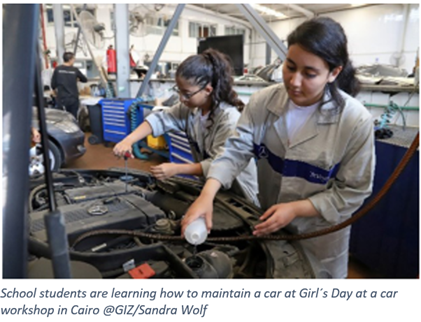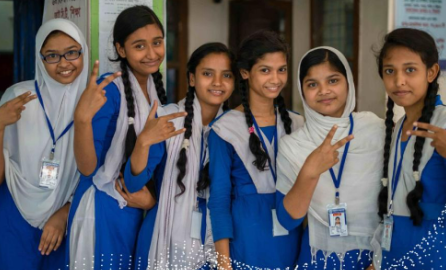WoMENA - promoting gender responsive and inclusive politics and economy in the Mena region

-
Gender marker: G2-Promotes gender equality as a primary objective
-
Period of implementation: 2022-2025
-
Amount: EUR 13,500,000
-
Geographical area: Southern Neighbourhood
-
(Co-)funded by: Germany – Federal Ministry for Economic Cooperation and Development
-
Implementing partners: GIZ and the Arab Women Organisation (AWO) at the regional level.
-
Link to the project: https://www.giz.de/en/worldwide/109627.html
-
GAP III’s Areas:
-
Economic and social empowerment
-
Equal participation and leadership
-
Despite all the efforts made by Middle Eastern and North African countries to adopt rules that set minimum levels of political representation for women, women’s voices and interests remain largely excluded from national and regional negotiation processes on political and economic decisions.
The Feminist Development Policy reinforces Germany’s commitment to ensuring, in contexts like the MENA region, an equitable participation of women in all areas of society, the key goal of WoMENA.
The project aims to strengthen the political and economic participation of women in the MENA region by enabling more than 5,000 politically and economically active women, as well as those most affected by the COVID-19 pandemic, to qualify for decision-making positions and improve their opportunities in the labour market. WoMENA contributes to strengthening the capacities of organisations, companies and networks working on economic or political justice for women, as well as to strengthening and connecting change agents.
To achieve this goal, WoMENA focuses on the root causes of gender inequality in order to change gender norms and promote positive masculinity. In close cooperation
with its partner, the Arab Women Organisation (AWO), the project has implemented regional exchanges on women’s political and economic participation in Arab countries, a series of workshops on unpaid care work, as well as several local initiatives, for example on women in leadership, paternal leave or gender-sensitive journalism. WoMENA also supports private sector companies in their commitment to more gender-diverse management.
By following an intersectional approach, the project also addresses the needs and interests of women in vulnerable situations, such as refugees, and, where the context allows, members of the LGBTQI+ community.
“The Amman Care Work Workshop was undoubtedly a valuable and productive experience. WoMENA’s efforts have significantly contributed to my capacity to make a positive impact in my area of care work.” Participant in the workshop series on Unpaid care work.

